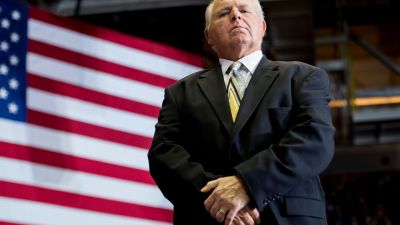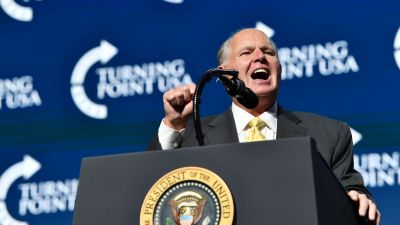
Democratic presidential nominee Hillary Clinton and Republican presidential nominee Donald Trump face off tonight in the first debate of the general-election campaign. (Clinton photo by Alex Wong/Getty Images; Trump photo by Justin Sullivan/Getty Images)
As we approach tonight’s big debate, here are a few things to keep in mind — the single most important of which is that the square off between Hillary Clinton and Donald Trump is not a political event broadcast by the media so much as it is a media event with political repercussions.
We have been told countless times that for all the noise swirling around presidential debates, in the past they haven’t really changed the outcome of elections. Though the needle does move — as much as 13.8 percent toward Gerald Ford after the first 1976 debate — in every instance but one since 1960, the winner of the election is the poll leader before the debate. The one exception: 2000, when George W. Bush took a lead afterward, even though Al Gore won the popular vote. If you are a Clinton supporter, that should be comforting.
But it may be the only thing that is comforting. Yes, I know. Clinton supporters are certain her command of facts and understanding of how government works, her quick mind and calm and sober approach will prove an overpowering contrast with Trump. But that overlooks something: The presidential television debates have been without content, at least in how the media assess them. They are never — and I mean never — about command, understanding, policy, sobriety or intelligence.
They are about Richard Nixon sweating, Ronald Reagan quipping, George H.W. Bush staring at his watch in seeming boredom, Gore roaming the stage and Barack Obama seeming disinterested. There is a reason debate post-mortems focus on “performance.” From the media’s perspective, these are performances. As The Atlantic’s James Fallows observed, “In only a minority of cases have politicians gained or lost ground based on what they said, rather than how they looked while saying it.”
No doubt some people will argue these visual cues may tell us more about a candidate than what a candidate actually says. The idea is that performance skills are useful for a president. They do not and should not, however, define a presidency. And yet that is precisely what a debate proposes — which is why, I think, Hillary Clinton will be at such an enormous disadvantage. Those of us who listen closely to the debate and consider the points may very well declare her the “winner,” whatever that means. Those who watch the debate without listening may very well arrive at a different verdict.
It bears repeating that the media are not essentially substantive, especially television. They are essentially aesthetic. They are preoccupied with look and feel, with narrative and action. (This is one reason they, and the debates commission and the campaigns, devote so much attention to the debate stage, the lighting — even the size, height and style of the podiums and the temperature of the room.)
This is also why moderator Lester Holt, an agreeable and intelligent man, isn’t going to press Trump very hard. It would be bad aesthetics. For one thing, it would slow the pace of the show and create repetitions as Trump deflects or denies the proposition in the question. For another, it would give the impression of picking on Trump if Holt didn’t also press Clinton, which, were he to do so, would give the impression that Trump and Clinton are basically the same.
If this were an Oxford debate, Clinton would win convincingly. In a TV debate run by networks, Trump holds all the cards. He can bully Clinton both verbally and with his demeanor, and no one will stop him. He can bluster and lie, and if he is called out, which is unlikely to happen more than a few times, he can turn it on the moderator as another example of media elitism. If he repeats his simplistic pronouncements — “Build a wall!” — and he will, he will sound decisive contrasted with Clinton’s more nuanced proposals. And if he takes the course of seeming presidential, he will win plaudits for… well, for seeming presidential.
Perhaps most of all, Trump’s pose, his familiar self-satisfied jaw-jutting that mimics Mussolini’s after a pronouncement, makes him look strong, while the camera hates Clinton, in no small measure because she hates the camera, and it makes her look angry. This is show biz, folks. It is how we elect a president now, and it certainly doesn’t work to Clinton’s advantage, or to the advantage of any serious candidate. That is part of the post-political age in which we live.
But the greatest advantage for Trump is that we the viewers don’t judge the debate. The media themselves do, and if they set it up as a performance, they also judge it almost exclusively as a performance. We will see lots of clips. We will not see any clips of a substantive exchange or a substantive answer. We will see clips of contentiousness or insult — of the things that television loves — and we may be forced to ask ourselves a variation of the age-old question: Who are you going to believe, the media pundits or your own eyes? If the past is any guide, the analysis will focus on the things least important in selecting a president. For Trump this is a no-lose situation. For Clinton, a no-win. Her only hope — and it is a small one — is that the media see her “performance” as the calm and confident “Benghazi testifying” Clinton. But don’t count on it.
That is why this debate, unlike just about all of those in the past, might actually alter the outcome of the election. The closest analogue might be 1980. Though Reagan already had a small lead going into the debate, the national jury was still out about his temperament. If the election analysis is to be believed, his debate performance seemed to put those doubts to rest. The public didn’t like Carter but had reservations about Reagan. When Reagan calmed their nerves, he won overwhelmingly. The media have convinced everyone that the public hates Clinton. This debate may close the deal for Trump if he can pull a Reagan.
Bottom line: however you wind up feeling about the debate, the networks will try to make sure you enjoy the show. And there is only one showman in the race.




